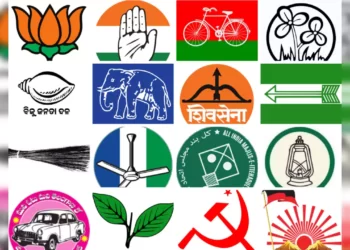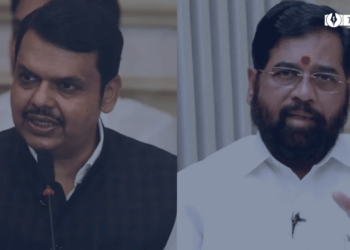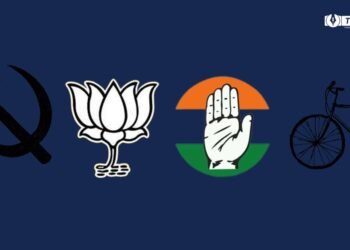[ad_1]
India is dealing with a rise in Covid-19 cases. The new variant Omicron is becoming a hazard for India. India reported 90,000 cases in a single day on 6 January with a rise of more than 40-50%. State Governments have imposed covid-19 restrictions and issued fresh guidelines to curb the rising cases.
Despite restrictions on mass gatherings like big parties and major public events, the politicians have been attending massive public rallies and roadshows with countless audiences. There are no social distancing rules and no checks on the number of people attending the events.
Keeping a note of this case, some time back the Allahabad Court urged the Election Commission to consider banning all political rallies. Also, it suggested the Election Commission consider postponing the upcoming Assembly election in India. The increasing threat of Omicron and rising cases has made it important to decide on massive public rallies.

Election rallies were a contributing element to the rise of Covid-19 cases during the first half of 2021. Taking a lesson from the last experience, the Election Commission has been holding meetings to review the situation in the poll-bound states. This situation has become a popular topic for political debate with innumerable people violating covid-19 guidelines.
While the EC is yet to decide on it, the election rallies in UP and other poll-bound states are being held in full force. HM Amit Shah took part in a massive roadshow in Hardoi on 28 December. On the same day, Samajwadi Party chief Akhilesh Yadav addressed a huge rally in Unnao and Congress organized a women’s March in Lucknow and Jhansi. There were no social distancing norms of covid-19 guidelines followed in these events. This has become a bigger problem because less than 30% of UP’s population is vaccinated. These political events can easily turn into mass spreader events for covid-19 threatening the lives of countless people.

The new variants have become a global threat and nations like the Netherlands have implemented a complete lockdown to curb it. Germany had deployed its armed forces to support the health infrastructure in the fight against covid-19. In such a situation, massive public rallies are a disaster.
The Assembly Elections for 5 states are due to take place in the earlier months of 2022. It includes Goa, Manipur, Uttarakhand, Punjab, and UP. The earliest due date for elections is for Goa by March 14. EC combines the elections of different states to ensure that the results of one state do not become an influential factor for voters in other states. It is not possible to delay the elections even a day. Also, to keep a safe margin it is important to compete in the elections of all 5 states before March 10.
Since UP is a highly populated state with more Assembly seats than the other 4 states, its elections shall be held in at least 5-6 phases. The poll should begin by February 10 and there is a constitutional law that requires a poll process of 26 days. So, the notification of the first phase should be issued by January 15. The EC gets 21 days and ideally, it should have announced election dates by December 25. It is essential to make an immediate announcement over the elections. The political parties have maintained a stand that their election rallies won’t stop until the Election Commission issues orders. Even if a few parties take a voluntary decision to cancel election rallies, it would not be sufficient for tackling the grave situation.

It is important to understand that banning public rallies and postponement of elections are two different concepts EC can give an executive order to ban rallies. But, they don’t have the complete authority to postpone elections. Postponement can be a violation of the constitutional law that gives a fixed term to every Vidhan Sabha. When the term ends, the Legislative will be dissolved automatically.
The constitutional provision says that the term of the Legislative assembly can be extended only in case of emergency declared by the Parliament. The emergency for an extension can be made in two situations- War or breakdown of law and order. After the Freedom of India, the term of the Legislative Assembly has been extended only 3 times. The legislature got extensions for insurgency situations in Assam, Punjab, and Jammu, and Kashmir.

The first Legislative Assembly Elections after the advent of covid-19 were held in Bihar. The EC issued detailed guidelines for conducting safe elections in the shadow of the Pandemic. Some lessons were taken from countries like South Korea and Sri Lanka.
Some important guidelines were-
- Decrease in the number of electors per booth.
- To Set up more polling booths.
- Introducing postal ballot options for senior citizens (over the age of 80), covid-19 positive patients, and persons with disabilities.
- To Curtail the number of counting tables.
The Election Commission encouraged the political parties to go for virtual rallies. The basic guidelines of social distancing, wearing masks, and sanitization were carried out. The Bihar elections ended successfully. However, the next West Bengal elections ended with a sharp rise in covid-19 infections.

There is a common opinion that the reason for improper implementation was shortcomings in guidelines. But, the guidelines issued by the Election Commission were a result of thorough research and study. These guidelines were among the best in the world for this situation.
It’s important to ensure strict implementation of the guidelines. After the blame on elections and rallies for the second wave of covid-19, EC has a vital opportunity to learn from experience and improve its efficiency.
The EC can take decisions on rallies and other campaigning activities. However, it’s challenging to delay elections. EC has the right time to prove its capabilities for managing the elections of the country without compromising the health of the people.
Also Checkout: PM’s Punjab election rally: The 15-minute delay seemed longer than the 15-month wait
[ad_2]
Source link









